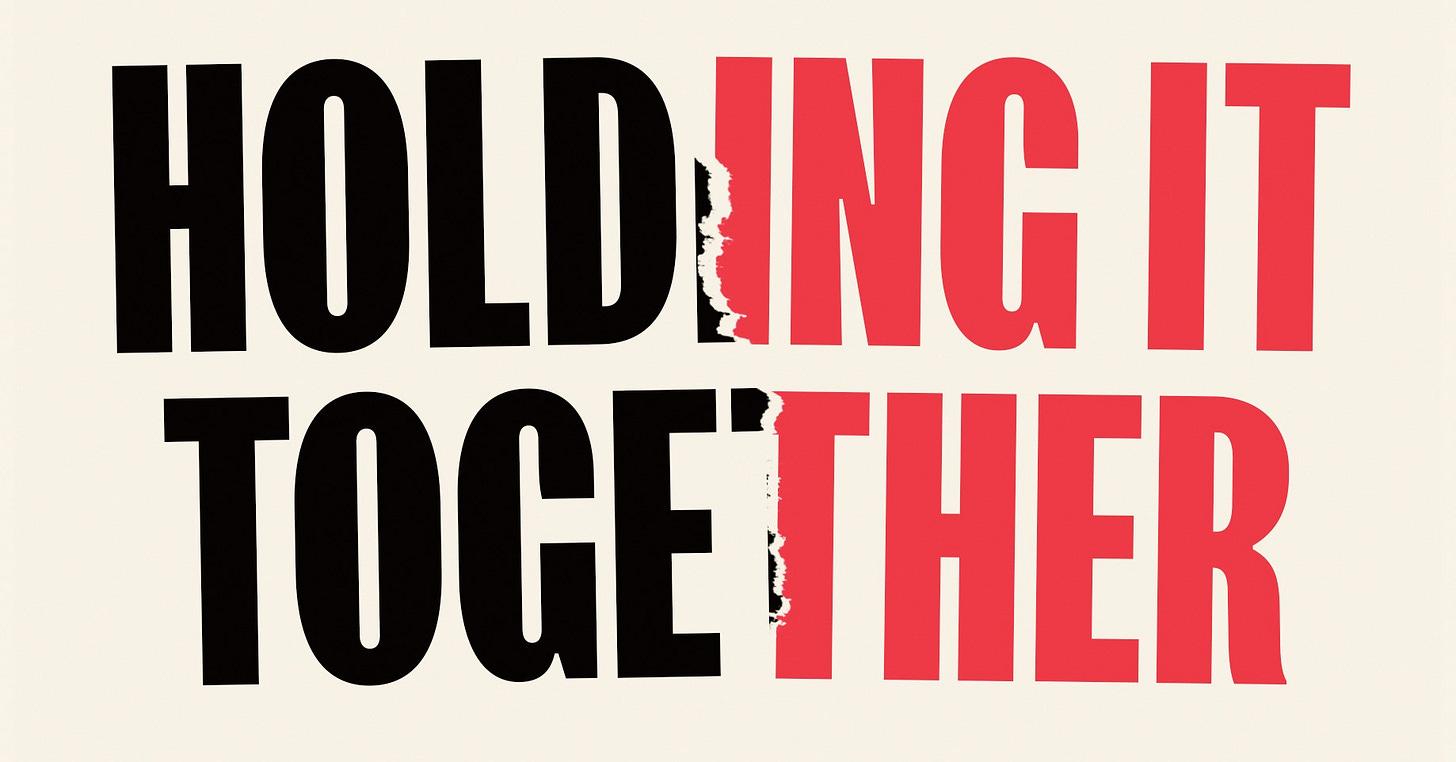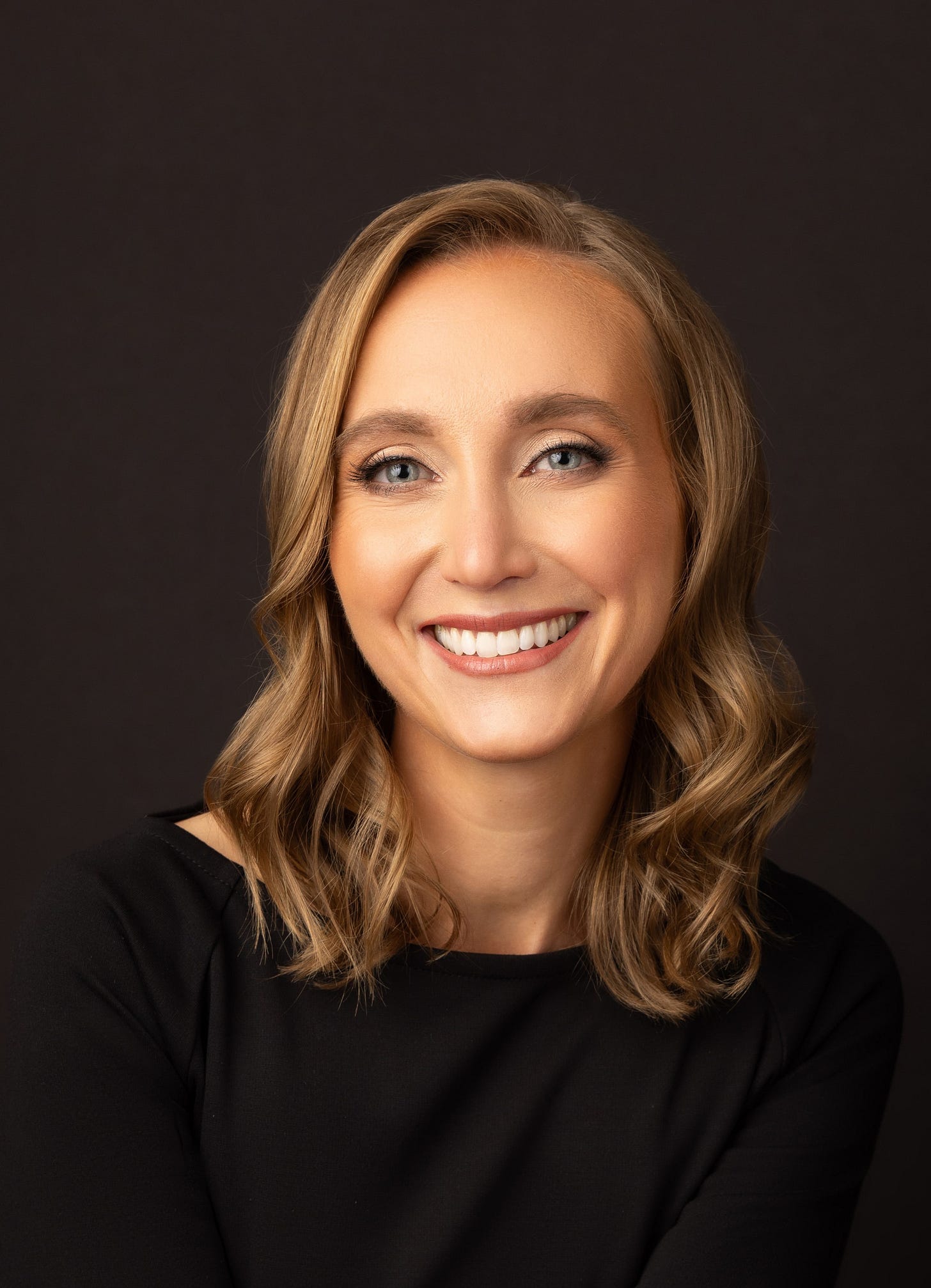“Other countries have safety nets. The U.S. has women.”
Jess Calarco has the answers. Is anyone listening?
Thank you so much for reading our work — we’re so glad you’re here! A reminder that paid subscribers get access to subscriber chats, to our archive of interviews and thoughtful essays, and other paid content that helps keep us sane in these times.
You may have read that Donald Trump and J.D. Vance stumbled last week answering questions about the childcare crisis, with Vance suggesting we ask Grandma or Grandpa “to help out a little bit more,” and Trump appearing to be confused about the whole notion of actually caring for children.
One person with a lot of crystal clear, practical and achievable solutions to the crisis in child care and our social safety net in general, is Jess Calarco, a sociologist at the University of Wisconsin-Madison, and a writer who has thought a lot about the kind of country we would be if we provided everyone with the safety net they needed to thrive.
In November 2020, in the thick of the pandemic, Jessica Calarco did an interview with
in which she said the quiet part out loud:“Other countries have social safety nets. The U.S. has women.”
With that in mind, I’m re-upping a conversation I had with Calarco back in June, as she was getting ready to release her new book, Holding it Together: How Women Became America’s Safety Net."
A version of this interview originally ran in July 2024.
This seems so basic, but can you define what you mean when you talk about a social safety net? And what does it look like when it works?
You can think about it like tightrope walking.
A safety net there to protect you if you fall, and also to give you a sense of security and stability, so that you can take risks. When we have that protection in place, it's much easier to imagine a future where you're striving for things that are better, as opposed to just trying to stay as tightly as possible to wherever you are right now.
All of us have care responsibilities, even if those roles aren't formal or paid. Putting supports in place so that we all have the time and the space and the mental energy to do that care.
Things like paid family leave, paid sick leave, paid vacation time, stipends for families with dependents, preventing employers from penalizing workers for taking time off.
You write in the book that when women prove they can hold it together, we thank them by giving them more to hold. But my question is: Why is it hard to say no to more caregiving and service?
I think the heart of why it’s hard to say no stems from the fact that we know that the systems that we are operating in are broken.
If we don't do this, someone is not going to get the support and care that they need.
It's very hard for people who are attentive to those gaps in the system, to say, “Oh no, I'm just going to not care about anybody else.”
And I think that's especially true for people who, because of their own precarity within that system, understand that you're probably going to need somebody else's help someday.
Saying no both feels morally fraught in the sense of, “Who is going to be let down by me saying no?” And also personally fraught, in the sense of, “What am I putting at risk by not saying yes right now?”
Your book starts with a scene where you're typing your manuscript, and the Dobbs decision comes down. How do you make the connection between the issues of lack of a safety net, and the ramped up attacks on reproductive rights?
We're seeing women questioning that maybe marriage is not the right option, maybe childbearing is not the right option. We've put so much pressure on women to be the ones who have to hold their families together — and their communities and do all of this labor.
Motherhood is not the only root of exploitation, but in the absence of paid family leave and in the absence of affordable childcare, motherhood can very easily become a trap.
Once women are in that situation and have a child that they're responsible for, and don't have access to childcare or paid leave, they can be forced to either take whatever paid job is available to support them, or to become dependent on men's labor.
So we've seen women pushing back against that and saying, like, “Maybe this isn't the right choice. Maybe motherhood is not the way that I want to go.”
You write that, if we think of people like cogs in a machine, we actually need babies who are born into precarious positions, because those are the babies who are more likely to grow up to be the people who fill jobs that no one else wants to take.
I think that's what they're trying to protect with attacks on reproductive freedom. They are trying to make sure that women stay in a position where they can be easily manipulated for the benefit of the capitalist economy, and for the benefit of the patriarchy, and to make sure we have enough kids to become the kinds of low-income adults who don't have very much choice about which jobs to take.
I work with a handful of people who grew up outside the U.S. and they just shake their heads and ask, “Why aren't people rioting in the streets over how terrible the healthcare system is?” How can we get into the streets about these things? It’s not like we don’t have examples of how these programs could work.
If we want to change things, we have to get people to reject these myths. The myth of meritocracy, this supermom idea that women have to do everything because they're the only ones who can protect kids. We have to get people to reject those ideas if we're ever going to persuade them to vote for their own interests.
Once you put new policies in place, people's attitudes follow suit. Once you get family leave for everyone, everyone gets on board, gender ideologies change, and people become more egalitarian.
The problem right now is the political will. We have big businesses and billionaires and people who are pulling the strings behind the scenes in ways that prevent that from happening, at least on the political level.
We need to help people to reject these ideas that are keeping them deluded and divided.
Deluded into believing that we don't need a social safety net, and divided in ways that keep us from coming together to fight for this better net, for things that that could actually protect us.
I see hope in that there are spaces in our society where people come together, that could be harnessed for education, and for political movement, and for collective action.
Like, for example, the amount of time that moms who have young kids spend on Facebook mom’s groups. A lot of it is talking about which diaper cream is the best or which preschool should I choose for my kid. But that can be a place where we harness that energy.
I hope this book will maybe start some conversation. Maybe one of us wants to run for local office, and the rest of us will support that for that person in doing so.
We can start a groundswell from those spaces where people are already coming together and helping them to see across difference, helping them to recognize that we are stronger together and that we have these shared interests.
All of us would be better off with the kinds of social safety net programs that many countries take for granted.
And we could certainly have them if we wanted to.
Jess Calarco’s new book is Holding it Together: How Women Became America’s Safety Net. You can read the original conversation, here.
Hello new readers! Paid subscriptions and gift subscriptions keep this work going, starting at just $5 a month using the link below, and give you unlimited to access to MR posts, archives, and subscriber chats. Thank you for reading, and thank you for being here!








Thanks again for featuring Jess Calarco, particularly at this election moment when priorities are being discussed.
I appreciate that you articulated what Calarco wrote about the corporate mindset of "needing cogs in the wheel," where overwhelmed mothers take any job and children, deprived of opportunity, take the jobs no one wants. It's a dark thought, but important to make conscious.
This! This is what’ve want the candidates and policy makers and pundits to acknowledge !
“Motherhood is not the only root of exploitation, but in the absence of paid family leave and in the absence of affordable childcare, motherhood can very easily become a trap.”
Every time I hear some dude in the media talk about “the weird discourse on gender” in this election like it’s all just abstract rhetorical game play, I want to scream.